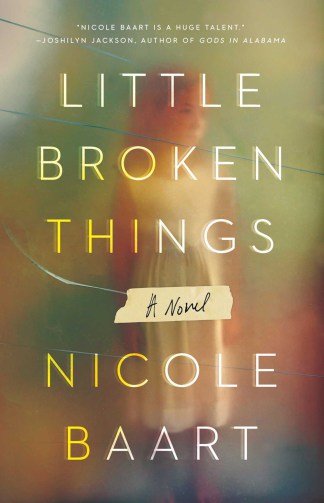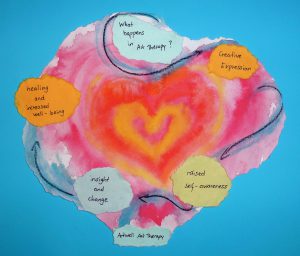
Sharh as-Sunnah : Lessons 37 : Point 50
Shaykh Fawzan | Dawud Burbank [Audio|English]
Imaam Barbahaaree rahimahullaah said:
And everything that Allaah has decreed should pass away will pass away but not Paradise, the Fire, the Throne (`Arsh), the footstool (Kursee), the Horn (As-Soor), the Pen (Qalam) and the Inscribed Tablet (Al-Lawh). Nothing of these will ever pass away.
Then Allaah will resurrect the creation upon what He caused them to die upon on the Day of Resurrection and He will bring them to account as He wishes. A group will be in Paradise and a group will be in the blazing Fire and He will say to the rest of the creation; those who are not created to persist, “Be dust.”
[Souncloud Audio Link]
Transcribed Audio:
His saying, “And everything that Allaah has made it binding for that it will pass away then it will pass away.”
He, the Majestic and Most High said:
كُلُّ مَنْ عَلَيْهَا فَانٍ – 55:26
وَيَبْقَىٰ وَجْهُ رَبِّكَ ذُو الْجَلَالِ وَالْإِكْرَامِ – 55:27
Everyone upon the earth will perish but the Face of your Lord full of Majesty and Honour will remain. (Sooratur-Rahmaan (55), aayah 26-27)
All of the creation will pass away and nothing will remain except Allaah, the Perfect and Most High and in His saying, He, the Perfect:
كُلُّ نَفْسٍ ذَائِقَةُ الْمَوْتِ
Every soul shall taste death. (Soorah Aali `Imraan (3), aayah 185)
And His saying, He, the Perfect and Most High:
وَنُفِخَ فِي الصُّورِ فَصَعِقَ مَن فِي السَّمَاوَاتِ وَمَن فِي الْأَرْضِ إِلَّا مَن شَاءَ اللَّهُ
And the Horn will be blown and all who are in the heavens and the earth will fall down dead except whomever Allaah wishes. (Sooratuz-Zumar (39), aayah 68)
The meaning of illaah mann shaa-Allaah (except whomever Allaah wishes). They (the People of Knowledge) said, “it means the angels or the wide-eyed Hoor (women in Paradise) and Allaah knows best.”[1]
So, the whole of the creation will die and then they will be resurrected on the Day of Resurrection.
ثُمَّ إِنَّكُم بَعْدَ ذَٰلِكَ لَمَيِّتُونَ – 23:15
ثُمَّ إِنَّكُمْ يَوْمَ الْقِيَامَةِ تُبْعَثُونَ – 23:16
Then after that you should die then on the Day of Resurrection, you will be raised up to life. (Sooratul-Mu·minoon (23), aayah 15-16)
So, the Muslim should remember death and he should prepare for it with righteous deeds and he should ask Allaah that his life ends with a good conclusion (husn ul-khaatimah) and he should repent from evil deeds and this is the benefit of remembering death. When he remembers death then he should make preparation for it and therefore, he sallAllaahu `alayhi wa sallam said:
“Remember the cutter off of pleasures; death for you will not remember it over a large amount except that it will render it small nor over a small amount except that it will increase it.”[2]
So, it is not befitting that the Muslim should be inattentive to death. Rather, he should remember death always at all times and he should prepare for it and he should have eemaan (truly believe) in the resurrection; the Day when mankind will rise from their graves, standing up for the Lord of the whole of creation.
ثُمَّ نُفِخَ فِيهِ أُخْرَىٰ فَإِذَا هُمْ قِيَامٌ يَنظُرُونَ – 39:68
Then the Horn will be blown again and they will be standing, looking on.(Sooratuz-Zumar (39), aayah 68)
The souls shall be restored to them after the bodies have been resurrected from the graves and then they will be led to the gathering place (mahshar) to the end of what they encounter in the Hereafter from great hazards that they will have to pass through until they settle after that either in Paradise or either in the Fire for indeed Paradise and the Fire are the two abodes of permanent residents.
His saying “Everything will pass away except what Allaah has written to pass away will pass away but not Paradise, not the Fire and not the `Arsh (the Throne) and not the Kursee (Footstool),” for they will not pass away; those two (Paradise and the Fire), they will not pass away and they will not seize to exist. Allaah created them to persist. And as for the heavens and the earth then they will be changed. The heavens will split apart and the earth will split open and this universe will change.
He the Most High said:
يَوْمَ تُبَدَّلُ الْأَرْضُ غَيْرَ الْأَرْضِ وَالسَّمَاوَاتُ ۖ وَبَرَزُوا لِلَّهِ الْوَاحِدِ الْقَهَّارِ – 14:48
On the Day when the earth is changed to other than the earth and the Heavens and they (the people) will appear before Allaah; the One, the Irresistible Subduer. (Soorah Ibraaheem (14), aayah 48)
As for the `Arsh (Throne) then it will not change and Paradise and the Fire will not pass away and will not change. W’al Kursee (and the Footstool); it is below the `Arsh (Throne) and the `Arsh (Throne) is bigger than it and the Kursee is wider than the heavens and the earth and the `Arsh (Throne) is wider than the Footstool.
His saying, “And the Horn,” the Soor is the Horn, which is the Horn which is with the Angel Israafeel. It will be blown along with the souls in it and the souls will fly back into their bodies and come to life with the permission of Allaah.
ثُمَّ نُفِخَ فِيهِ أُخْرَىٰ فَإِذَا هُمْ قِيَامٌ يَنظُرُونَ
Then it will be blown another time and they will be standing up looking.(Sooratuz-Zumar (39), aayah 68)
His saying, “And the Pen and the Preserved Tablet,” Al-Lawh ul-Mahfudh (Preserved Tablet) and the Pen with which Allaah wrote the decreed measures, meaning the decreed measures of how everything would be.
His saying, “Nothing from this will ever pass away,” these things which Allaah created to persist; the Throne and the Footstool and the Preserved Tablet and the Pen and Paradise and the Fire and the souls, which were created then they will not pass away.[3]
His saying, “Then Allaah will resurrect the creation upon what He caused them to die upon on the Day of Resurrection,” meaning He will resurrect them upon what He caused them to die upon with regard to disbelief or true faith (eemaan), everyone will be resurrected upon his deeds, meaning upon the deeds that he did. And having eemaan (true faith) in the resurrection is one of the six pillars of eemaan (true faith) and having eemaan (true faith) in the Last Day occurs joined along with eemaan (true faith) in Allaah in many aayahs.
W’al Ba’th (and Resurrection), it is restoring mankind to life after their death in the world of the Hereafter. So, they live in this world for the purpose of action then they will die and they will be buried in the earth and they will remain in it for as long as Allaah wishes in the place of waiting and that is Daar ul-Barzakh (Place of Separation), the period separating this world and the Hereafter.Then they will be resurrected from these graves and they will arise from them alive just as they used to be, nothing from their bodies will be lost then the souls will be restored to their bodies then they will be led to the mahshar (gathering place) for the recompensing for their deeds, which they did in the world whether good or bad.
وَلَا تُجْزَوْنَ إِلَّا مَا كُنتُمْ تَعْمَلُونَ – 36:54
And you will not be recompensed except for what you did. (Soorah Yaaseen (36), aayah 54)
So, no-one will be rewarded for good that was done by somebody else or punished for the action of someone else.
وَلَا تَزِرُ وَازِرَةٌ وِزْرَ أُخْرَىٰ
And no bearer of burdens shall bear the burden of sins committed by someone else. (Sooratul-An`aam (6), aayah 164)
Everyone will be recompensed in accordance with his own deeds whether good or bad and this is justice (adl) from Allaah, the Perfect and Most High. He will not leave them without any recompensing when they had wearied themselves in this life in performing deeds and worship if they were righteous ones. Or wearied themselves, and Allaah’s refuge is sought, with disbelief and shirk and sin and causing corruption upon the earth if they were disbelievers. He will not leave them without a recompensing. This is justice from Allaah, the Majestic and Most High. So, this is the meaning of His saying here that everyone will be recompensed in accordance with his deeds. And since this is the case then it is obligatory upon the servant to look to his deeds, whilst he’s still alive. So, whatever is good then he should equip himself with that and whatever is evil then he should repent to Allaah from it and free himself from it as long as that is possible. He, the Most High said:
يَا أَيُّهَا الَّذِينَ آمَنُوا اتَّقُوا اللَّهَ وَلْتَنظُرْ نَفْسٌ مَّا قَدَّمَتْ لِغَدٍ
O you who believe, fear and be dutiful to Allaah and let each soul look at what deeds it has put forward for tomorrow. (Sooratul-Hashr (59), aayah 18)
Take account of yourself in this world before the reckoning, take account of yourself for your deeds and examine them and rectify whatever is corrupt from them and add to whatever is good from them and awaken from heedlessness. This is what is required from the person of intellect and therefore, he sallAllaahu `alayhi wa sallam said:
“Al-kayyis (the wise one) (meaning al-`aaqil (the prudent one)), the person of intelligence, he takes account of his-self and acts for that which comes after death. This is the astute person, the `aaqil. And the incapable person is the one who allows himself to follow his desires (meaning in this world) and just has vain hopes in Allaah.[4]
The incapable person is the one who allows himself just to follow his desires and just has vain hopes in Allaah, he wants paradise and he wants salvation but he doesn’t do anything. So, this person is incapable, and Allaah’s refuge is sought, aameen, with blameworthy incapacity, it is not physical inability. If he is actually not able to do i.e he does not have the ability to perform deeds, then this one would not be taken to account.
لَا يُكَلِّفُ اللَّهُ نَفْسًا إِلَّا وُسْعَهَا
Allaah does not burden a soul except with what it is able to do. (Sooratul-Baqarah (2), aayah 286)
However, this one; the `aajiz (truly incapable person) has ability and he is able to act but the inability is due to laziness & not-caring. This is the one who is truly incapable and yet along with this, he has vain hopes that in the Hereafter he will be from the people of Paradise without any deed, without any action. It is not possible that this one will be from the people of Paradise without any deed.
His saying, “And He will take account of them as He wishes, there will be a group in Paradise and a group in the blazing Fire,” He will take account of them for their deeds, He, the Perfect and Most High and Al-Hisaab (the Reckoning), it is al-munaaqashah (examination) regarding the deeds. So, the people will be in different categories with regard to reckoning. Four categories of people with regards to reckoning in the herefater.
From the believers, there will be those who will receive no reckoning so he will enter Paradise without any reckoning and any punishment. May Allaah make us from it.
And from them will be those who will be given an easy reckoning and that is just presentation of records.
And from them are those who will be interrogated in the reckoning :
“Whoever is closely examined regard his record will be punished.”[5]
And the kaafir (disbeliever) will not be reckoned with a reckoning involving weighing of deeds. Rather, he will only be reckoned with a reckoning that involves confessing that he will be shown his deeds and his disbelief and his shirk for him to confess it and he will not be able to deny anything at all then he will be sent to the Fire.
His saying, “There will be a group in Paradise and a group in the blazing Fire,” this is derived from the aayah:
وَتُنذِرَ يَوْمَ الْجَمْعِ لَا رَيْبَ فِيهِ ۚ فَرِيقٌ فِي الْجَنَّةِ وَفَرِيقٌ فِي السَّعِيرِ
And warn them of the Day of the Gathering about which there is no doubt, there will be a group in Paradise and a group in the blazing Fire. (Sooratush-Shooraa (42), aayah 7)
A group there will be in Paradise and they are the people of eemaan (true faith) and there will be a group in the blazing Fire and they are the people of disbelief and transgression.
His saying, “And He will say to the rest of the creation from those who are not created to persist, “Be dust”,” Allaah will raise up the creation on the Day of Resurrection; the humans and the animals and the birds.
وَمَا مِن دَابَّةٍ فِي الْأَرْضِ وَلَا طَائِرٍ يَطِيرُ بِجَنَاحَيْهِ إِلَّا أُمَمٌ أَمْثَالُكُم ۚ مَّا فَرَّطْنَا فِي الْكِتَابِ مِن شَيْءٍ ۚ ثُمَّ إِلَىٰ رَبِّهِمْ يُحْشَرُونَ
There is not a creature upon the earth nor any bird, which flies with its two wings except that they are communities like you. We have not neglected anything from the Book. Then they will be gathered to their Lord. (Sooratul-An’aam (6), aayah 38)
And, He, the Most High said:
وَإِذَا الْوُحُوشُ حُشِرَتْ
And when the wild beasts are gathered. (Sooratut-Takweer (81), aayah 5)
The created beings will be gathered on the Day of Resurrection in order to establish justice between them to such an extent that revenge will be taken from some for others. The animals; revenge will be taken from some in favour of others to the extent that revenge will be taken for the hornless ram from the ram (male sheep) with horns as occurs in the authentic hadeeth.[6]
And then when vengeance has been taken from some for others, Allaah, the Majestic and Most High will say to them “Be dust” because they were not raised up to remain and persist in the Hereafter. Rather, they were only raised up for recompensing only and this is from the justice of Allaah, the Majestic and Most High. Then the disbeliever will say:
يَا لَيْتَنِي كُنتُ تُرَابًا
“would that I could be dust.” (Sooratun-Nabaa (78), aayah 40)
When it will be said to the animals “Be dust”, the disbeliever will vainly wish that he could be like them.
Footnotes:
[1] This was mentioned by Al-Baghawee in his Tafseer from Ad–Dahhaak rahimahullaah.
(Ad–Dahhaak; famous mufassir of the Qur’aan referred from a group of Taabi’een, Ad–Dahhaak ibn Muzaahim al-Hilaalee al-Khurasaanee who died in the year 105).
Al-Baghawee mentions that he said (referring to the ones who are accepted), “they are Ridwaan and Al-Hoor (the wide-eyed Hoorees) and Maalik and Az-Zabaaniyah.”
[2] The first part of the hadeeth, “remember the cutter off of pleasures; death,” is reported by Imaam Ahmad and at-Tirmithee and Ibn Maajah and an-Nasaa`ee and Ibn Hibbaan in his saheeh from a hadeeth of Aboo Hurayrah radiyAllaahu `anhu. That hadeeth up to that wording there was declared hasan; saheeh (good; authentic) by Shaykh al-Albaaniyy.
As for the full wording then al-Bayhaqee reports that wording “…for you will not remember it…” in Shu’b al-Eemaan as the hadeeth of ibn `Umar radiyAllaahu `anhuma and Shaykh al-Albaaniyy declared that particular narration weak in Da`eef al-Jaami` W`Allaahu A`lam.
[3] Translator’s side point: Al-Kursee (the Footstool), Ibn Abee Haatim reported in his Tafseer from Muqaatil that he said in explanation of His saying, He, the Most High:
كُلُّ شَيْءٍ هَالِكٌ إِلَّا وَجْهَهُ – 28:88
Everything will perish except for Allaah’s Face. (Sooratul-Qasas (28), aayah 88)
“All the living things in particular from the inhabitants of the heavens and the angels and whoever is upon the earth and all animals; all living things and then the heavens and the earth will be destroyed after that and Paradise and the Fire will not be destroyed and whatever is within them nor the Throne and nor the Footstool.”
[4] Reported by Imaam Ahmad in his musnad and At-Tirmithee and Ibn Maajah and Al-Haakim and Al-Baghawee in Sharhus-Sunnah and others from a hadeeth of Shaddaad ibn Aws radiyAllaahu `anhu and it was declared authentic by Al-Haakim and declared hasan (good) by At-Tirmithee and Al-Baghawee.
Translator’s side point: As for Shaykh Al-Albaaniyy then he declared this narration da`eef (weak) in his checking of Mishkaat in Ad–Da`eefah hadeeth 5,319 because of the weakness of its narrator Aboo Bakr ibn Abee Maryam al-Ghassaanee, W`Allaahu A’lam.
Famous narration from `Umar radiyAllaahu `anhu with a similar meaning to the end of what’s reported. Imaam Ahmad reports it in his book Az-Zuhd as the saying of Umar radiyAllaahu `anhu. W`Allaahu A’lam:
“Take account of yourselves before you are taken account of.”
[5] Reported by Al-Bukhaariyy in his saheeh, should be the reference, hadeeth 6,537 and reported by Muslim in his saheeh hadeeth 2,876 from the hadeeth of Aa’ishah radiyAllaahu `anhaa and Allaah’s refuge is sought, Aameen.
[6] Reported by Muslim in his saheeh 2,582 from Aboo Hurayrah radiyAllaahu `anhu.
—
Ithaaful-Qaaree bit-Ta`leeqaat `alaa Sharhis-Sunnah
(A Gift To The Reader In Annotation Of Sharh As-Sunnah)
by Shaykh Saalih ibn Fowzaan al-Fowzaan hafizahullaah
Translated by Aboo Talhah Daawood Burbank, rahimahullaah
Transcribed by Saima Zaher.
Posted with kind permission from Dawud Burbank rahimahullaah
Listen to the full Audio Series of Sharhus Sunnah
Sharh-us-Sunnah – Shaykh Saalih Fawzaan – Dawood Burbank [Audio|En]
Visit : Book Study of Sharhu Sunnah of Imaam Barbahaaree
Related Link: https://abdurrahman.org/finaljourney/
Share this, Baarakallaah Feekum: [“One who guides to something good has a reward similar to that of its doer” - Saheeh Muslim vol.3, no.4665] [This website protects the copyrights of the authors/publishers. The Content is posted on this website with implicit/explicit permission from content owners. If you find any copyright violations please inform the same.I ask you to fear Allah before you spread the rumours and false information]- More





